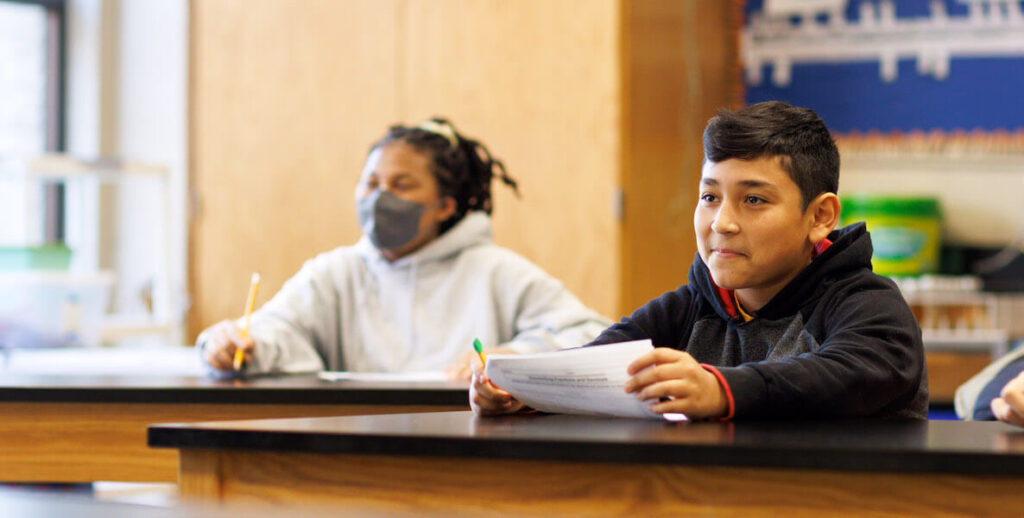When I read the latest news that the School District of Philadelphia is now accepting teacher applications for the next academic year, I felt a mix of elation and caution. This feels like the right direction to be moving in and we must do everything in our power to feed teachers into that pipeline now. However, we also need to focus on the quality of the education our students are receiving.
As educators and as a state, it is no secret that we have been failing our students. If it is not teacher shortages, our children are having to contend with receiving an education that saw large declines in eighth grade math scores. That is according to a recent report from the National Assessment of Educational Progress (NAEP), which had previously reported eighth grade math students in Pennsylvania consistently performing better than most of the country for two decades. All of this against the backdrop of gun violence in our city, which played out at Roxborough High School with tragic consequences this September when one student was killed and four others were injured.
But it doesn’t have to be that way. Eric Stern, Jr. is a talented ninth grader who is being exposed to all kinds of opportunities at his new school, LaSalle College High School in Wyndmoor. He previously attended Wissahickon Charter School. His new school offers summer service trips to nine different states and four countries, 26 AP classes, and gives Eric the space to choose what he wants to do with his life.
All students, including Eric, deserve a foundation for success, with good mentors and teachers who care about them, and a school that has fundamental resources like a working library. In over 200 schools in the Philadelphia School District, only 10 have certified school librarians — and that doesn’t mean they are full-time; many of them have to manage more than one job. How can we inspire our students if we do not have adequate resources?
At Breakthrough of Greater Philadelphia, we are striving to address these challenges in our schools and reach equity and diversity in education. We support scholars like Eric looking for the best education and school experience they can find, and we introduce college students to the idea of teaching.
Through our programs, we solve two problems: exposing students to opportunities that just might change their life’s trajectory, and increasing the number of college students choosing teaching as a fulfilling career. We do this by inviting sixth, seventh, and eighth graders to a summer school and a Saturday program during the school year that offers new experiences taught by college students (we call them Teaching Fellows).
Our staff and Teaching Fellows bring Breakthrough middle schoolers (we call them Scholars) to a variety of high schools (private, charter and magnet), ones that are not underfunded, understaffed, or left for decades without renovations like Philadelphia’s school district. Many issues are not going to be fixed tomorrow, but we can help now.
There are many wonderful local nonprofits who are supporting students in Philadelphia schools; we know we are not alone. We all work in tandem to create a different future for this next generation, as Whitney Houston once sang, “I believe the children are our future, teach them well and let them lead the way.”
What we are doing at Breakthrough is working. Our students are learning to golf, studying contagious diseases like Covid in science classes, and finding fun ways to approach math problems. We supported 140 students this year, and over 1,500 since we began our program in 1995. We have also seen three out of four of our college-aged Teaching Fellows go on to become educators after our nine-week teacher fellowship; 60 percent are people of color, a population of educators the Philadelphia School District desperately needs.
One solution will not fix all the challenges our young students are facing, but we must start somewhere, so this next generation is not left behind.
Michelle Palmer is the executive director of Breakthrough of Greater Philadelphia. She has a Master of Science in Education in Instructional Technology from Arcadia University, a Master of Science in Nonprofit Management from New School University, and a Bachelor of Arts in Communications from Temple University.
Correction: A previous version of this post described Breakthough at “new.” The organization came to Philadelphia in 1995 and was established nationally in 1978.
MORE ON EDUCATING PHILADELPHIA STUDENTS

